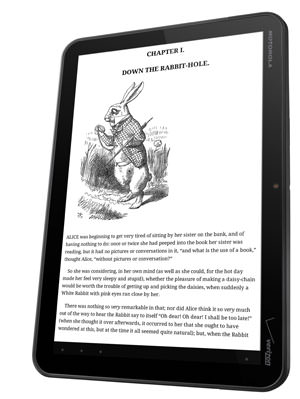Google’s Eric Schmidt Kills Trees
The business brains behind Google tells The Atlantic about his decidedly low-tech taste in information: "For me, there’s no better place to get accurate, fresh information—well-reported information—than a newspaper." Schmidt reads both the paper and Web editions of The New York Times and The Wall Street Journal, and prefers "paper and ink" books to e-readers.
The business brains behind Google tells The Atlantic about his decidedly low-tech taste in information: “For me, there’s no better place to get accurate, fresh information—well-reported information—than a newspaper.” Schmidt reads both the paper and Web editions of The New York Times and The Wall Street Journal, and prefers “paper and ink” books to e-readers.
No Luddite, Schmidt says he gets a lot of his information from Google News, Google Alerts and various blogs. He refuses to accept the notion that news outfits can’t hack it online:
Dig, Root, GrowPeople ask me a lot about the crisis in the newspaper industry. The truth is I see now as a moment of tremendous opportunity in this industry—there are so many possible places where we can unite technology with the great reporting and experience that already exist out there to come out of this better than ever. I don’t have all the answers but I have some ideas: you could get news that is more personalized to you, so you can find stories that you’re interested in—in less time and without having to filter through the information you don’t want. So that when you turn to get your news you find that the news source “knows” what you like and you don’t have to start over each day. You can customize for where and how you’re getting the information—on your phone or your tablet, or desktop, or however you choose to get it. You could use machine translation to translate news from a paper on the other side of the world so you can get a different perspective on an issue.
Of course I think that part of the way to pay for all of this great content is with advertising—both text ads like those that Google started with and display ads, so you can add in that other piece to the puzzle. But when you put all these things together—personalized news, wherever you want it, in whatever language you want it, with your friends’ recommendations or what have you—you find that this is all something that is really worth paying for. So you might have a subscription or something like a “freemium” model where you get some of it for free or pay small amounts for the rest. With some combination of paid content and ads, you can move towards a thriving business model.
— PZS
This year, we’re all on shaky ground, and the need for independent journalism has never been greater. A new administration is openly attacking free press — and the stakes couldn’t be higher.
Your support is more than a donation. It helps us dig deeper into hidden truths, root out corruption and misinformation, and grow an informed, resilient community.
Independent journalism like Truthdig doesn't just report the news — it helps cultivate a better future.
Your tax-deductible gift powers fearless reporting and uncompromising analysis. Together, we can protect democracy and expose the stories that must be told.
This spring, stand with our journalists.
Dig. Root. Grow. Cultivate a better future.
Donate today.






You need to be a supporter to comment.
There are currently no responses to this article.
Be the first to respond.